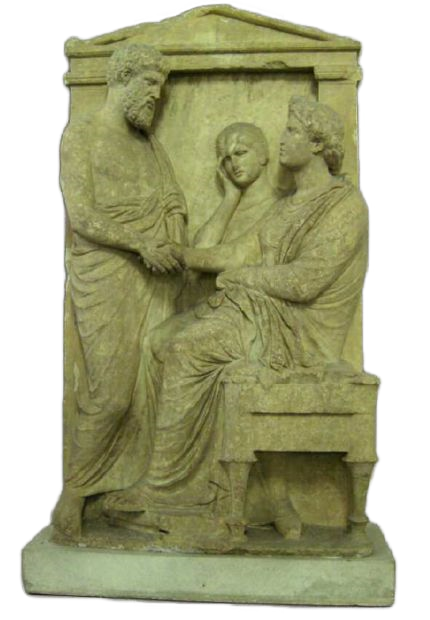|
Part I
The Christian Institution of the Family and the Role of Personality
Chapter 1 The Family in Ancient Times
|
|
|
It was God Himself who created the first family: “And God created man to his own image: to the image of God he created him: male and female he created them. And God blessed them, saying: ‘Increase and multiply, and fill the earth, and subdue it….’” (Gen. 1:27–28) First God created Adam. Then He gave him Eve as his companion. In this way, God created the family forming it into a society where the wife is subject to the husband, and the children to their parents. In the beginning, there was no State. The family was everything. Fustel de Coulanges, in his celebrated book The Ancient City, describes the concept of the family in the Ancient world: We can catch a glimpse therefore of a long period, during which men knew no other form of society than the family…. Each family has its religion, its gods, its priesthood…. Every family has also its property, that is to say, its lot of land, which is inseparably attached to it by its religion…. Finally every family has its chief, as a nation would have its king. It has its laws which doubtless are unwritten, but which religious faith engraves in the heart of every man. It has its court of justice above which there is no other that one can appeal to. Whatever man really needs for his material or moral life the family possesses within itself. It needs nothing from without; it is an organized state, a society that suffices for itself. But this family of ancient ages is not reduced to the proportions of the modern family. In larger societies the family separates and decreases. But in the absence of every other social organization, it extends, develops, and ramifies without becoming divided. Several younger branches remain grouped around an older one, near the one sacred fire and the common tomb…. From all this we see that the family, in the earliest times, with its oldest branch and its younger branches, its servants and its clients, might comprise a very numerous body of men. A family that by its religion maintained its unity, by its private law rendered itself indivisible, and through the laws of clientship retained its servants, came to form, in the course of time, a very extensive organization, having its hereditary chief.1 From these thousands of little groups of families larger groups were formed, which in turn formed tribes and then cities. Both Athens and Rome originated in this manner. Eventually a nation emerges. The theologian and essayist Mgr Henri Delassus refers, in his work The Spirit of the Family, to the thinking of Cicero in Republic: The family is the beginning of the city and, in a certain way, the seed of the republic. The family divides and branches out, but remains united. When the siblings, their children and grandchildren no longer fit in the paternal home, they leave to form new branches, just like new colonies. They form alliances from whence come new affinities, and the family propagates. Little by little, the branches multiply, everything grows, everything develops and the republic is born.2 The formation of a nation is, then, an organic process solidly based on the family unit. From this comes the notion that a nation is a family of families at whose head is the father of fathers.
“Matrimonial agreement in Rome”. Pergamon Museum, Berlin 1) Fustel de Coulanges, The Ancient City, translated from the French by Willard Small; Lee and Shepard publishers, 1874, Book 2, pp. 149–153. 2) Henri Delassus, The Spirit of the Family in the Home, Society and the State, Companhia Editora do Minho, S.A., Barcelos, p. 15. [translator’s note: further investigation seems to indicate that Mgr Delassus is in fact using Aristotle’s Politics as his source for this text]. |
|


